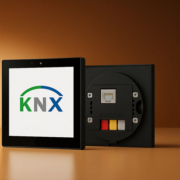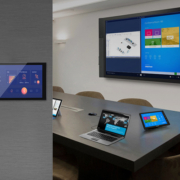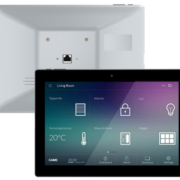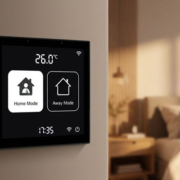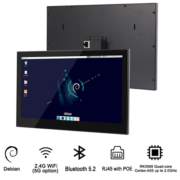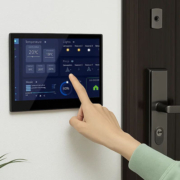What Is the Difference Between a Computer and a Raspberry Pi? Why PortPi from Portworld Might Be a Better Choice
In the era of digital transformation, many developers and users often ask: What’s the real difference between a traditional computer and a Raspberry Pi? Which one should you choose for your project? And is there a better, more stable alternative for commercial or industrial smart control applications?
In this article, we’ll not only compare computers and Raspberry Pi, but also introduce PortPi — a Raspberry Pi-like embedded computing platform developed by Portworld, optimized for smart home control panel systems and commercial environments.
1. Traditional Computers: High-Performance General Computing Platforms
Desktop and laptop computers are widely used for daily office tasks, gaming, and software development. They are equipped with powerful CPUs (Intel or AMD), large memory, high storage capacity, and advanced graphics capabilities, ideal for multitasking and resource-intensive applications.
Advantages:
- Powerful multi-core CPUs and GPUs
- Strong multitasking and processing capabilities
- Large storage and expandable hardware
- Supports major OS platforms: Windows, macOS, Linux
Limitations:
- Large in size; not suitable for embedded integration
- High power consumption
- Costly; unsuitable for mass deployment in IoT/smart panels
2. Raspberry Pi: Affordable & Flexible SBC for DIY and Learning
The Raspberry Pi is a credit card-sized ARM-based single-board computer (SBC) known for its affordability and flexibility. It’s widely used in education, hobbyist projects, home automation, and prototyping.
Advantages:
- Low cost, ideal for students and beginners
- GPIO support for hardware development
- Suitable for light automation, media servers, small robots
Limitations:
- Not industrial-grade; less reliable in 24/7 commercial use
- Limited performance for complex multitasking
- Requires technical knowledge for configuration and integration
3. PortPi by Portworld: A Commercial-Grade Alternative to Raspberry Pi
While Raspberry Pi is a great tool for learning and prototyping, real-world smart home or commercial environments require more robust, customizable platforms. That’s why Portworld developed PortPi — an embedded computing platform similar to Raspberry Pi but enhanced for professional and industrial applications.
PortPi vs. Raspberry Pi: Key Comparison
| Feature | Raspberry Pi | PortPi (by Portworld) |
|---|---|---|
| Processor | ARM Cortex-A | Rockchip RK, MTK, Spreadtrum |
| OS Support | RPi OS, Linux | Android 11/13, Linux (Debian/Ubuntu) |
| Reliability | Basic educational-grade | Industrial-grade, 24/7 stability |
| Interfaces | GPIO, USB, HDMI | GPIO, RS485, PoE, RJ45, HDMI, TF, UART |
| Commercial Use | No official customization | Full OEM/ODM, BSP/SDK customization |
| Applications | DIY projects, learning | Smart home control panels, AV systems, security |
4. PortPi in Smart Home Applications
PortPi is the core platform used in Portworld’s various smart control products, enabling powerful and stable operation across multiple use cases:
- 4-inch/5-inch Smart Control Panels: Android-based touchscreen controllers for smart home wall installations.
- PoE-Powered Control Devices: Simplified cabling with Power over Ethernet support.
- Smart AV & Surveillance Controllers: Seamless camera and audio management via touchscreen and joystick.
- PTZ Camera Touchscreen Controller: 10.1-inch LCD with Hall Joystick, powered by PortPi for high-end video conferencing and monitoring.
PortPi supports Zigbee, Wi-Fi, and Bluetooth modules, integrates with major smart home protocols (MQTT, Onvif, Z-Wave, Modbus), and offers remote OTA firmware updates and fully customizable UI interfaces.
5. Summary: Which One Should You Choose?
| Target User | Recommended Solution |
|---|---|
| Office workers, developers | Traditional PC |
| Students, hobbyists | Raspberry Pi |
| Smart home brands, integrators | PortPi by Portworld |
If you’re looking for a platform that combines flexibility, industrial stability, and customization, PortPi is the ideal alternative to Raspberry Pi for commercial projects. Backed by Portworld’s R&D strength, PortPi ensures secure, efficient, and long-term operation in smart control environments.


